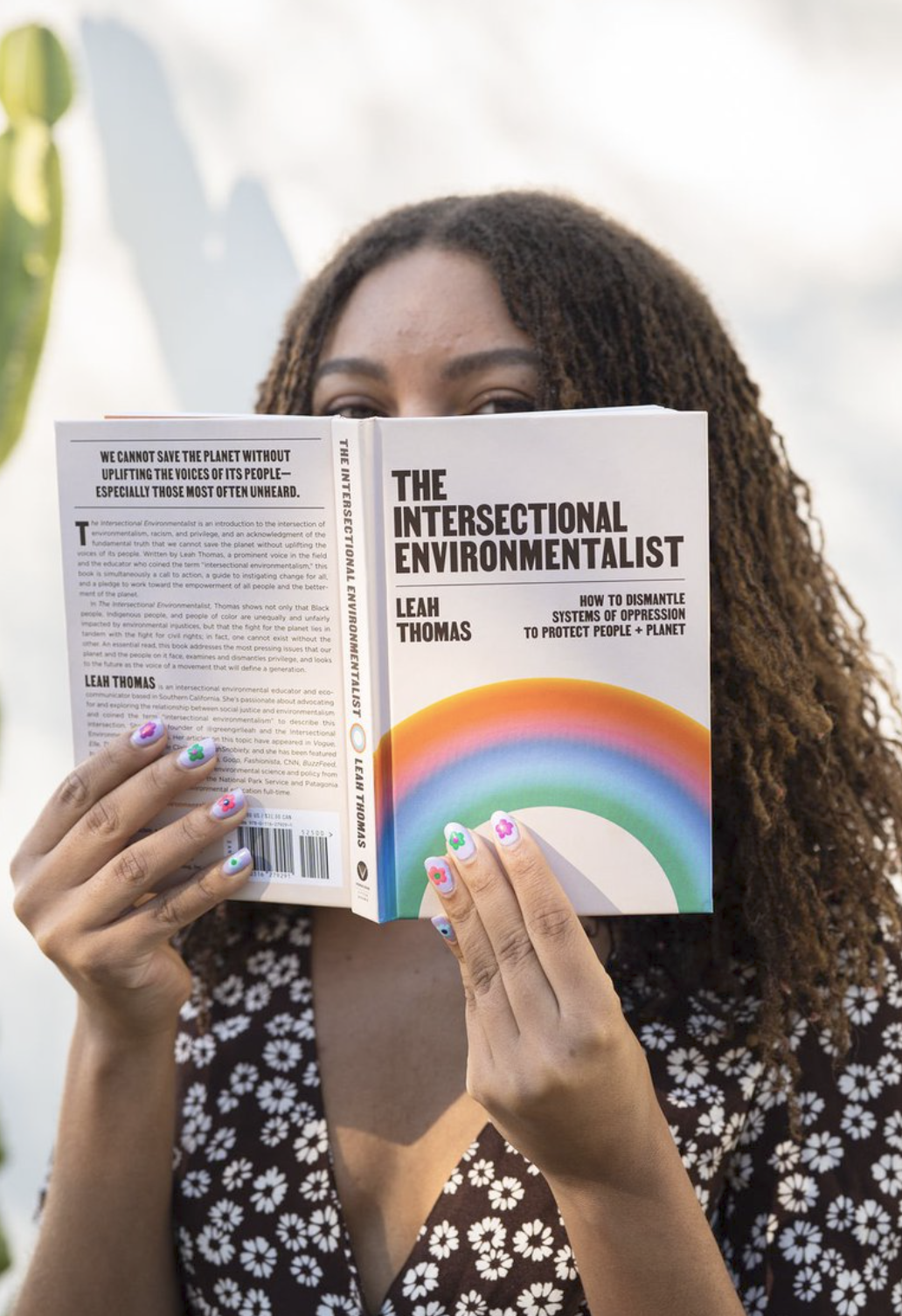
March 4, 2022
“I didn’t want to be an ‘environmentalist’ if that meant choosing between racial progress and environmental progress.”
—Leah Thomas, activist + author of The Intersectional Environmentalist.

The gist:
After feeling rejected by white feminists in her campus women’s groups + and ‘siloed’ at racial justice protests, she struggled to find “a space where she could bring her whole self—as a Black, feminist environmentalist. It wasn’t until “she went to her campus’s Black Student Union and first learned about intersectionality.” Kimberlé Crenshaw, a pioneering scholar and writer on civil rights, critical race theory, Black feminist legal theory, and race, racism and the law, coined the phrase, “describes overlapping systems of oppression that create distinct experiences for people with multiple identity categories.”
“I just felt like ‘Wow, I’m not alone. I’ve never been alone. And I can be in spaces where I can feel comforted and empowered at the same time.”
Her own ‘intersectional’ message coalesced after the death of George Floyd, when she posted the phrase “Environmentalists for Black Lives Matter,” (above), then cofounded Intersectional Environmentalist, “a climate justice group that centers BIPOC and historically under-amplified voices in the environmental space,” and now, she is releasing the book:The Intersectional Environmentalist: How to Dismantle Systems of Oppression to Protect People and Planet.
The book combines “original research as well as contributor anecdotes,” to illustrate “how Black Americans are disproportionately exposed to air pollution and Indigenous communities are often the most impacted by polluted drinking water.”
Thomas hopes readers will use her book “as a toolkit, as it also “draws on the advice of dozens of activists on topics ranging from how artists can play an active role in the environmental movement to how advocates can effectively educate others on intersectionality.”
Here’s an independent Bookstore to shop, or go to your local book seller.
Photo: Twitter + greengirlleah.com
Connect with The Nation interview post here.

